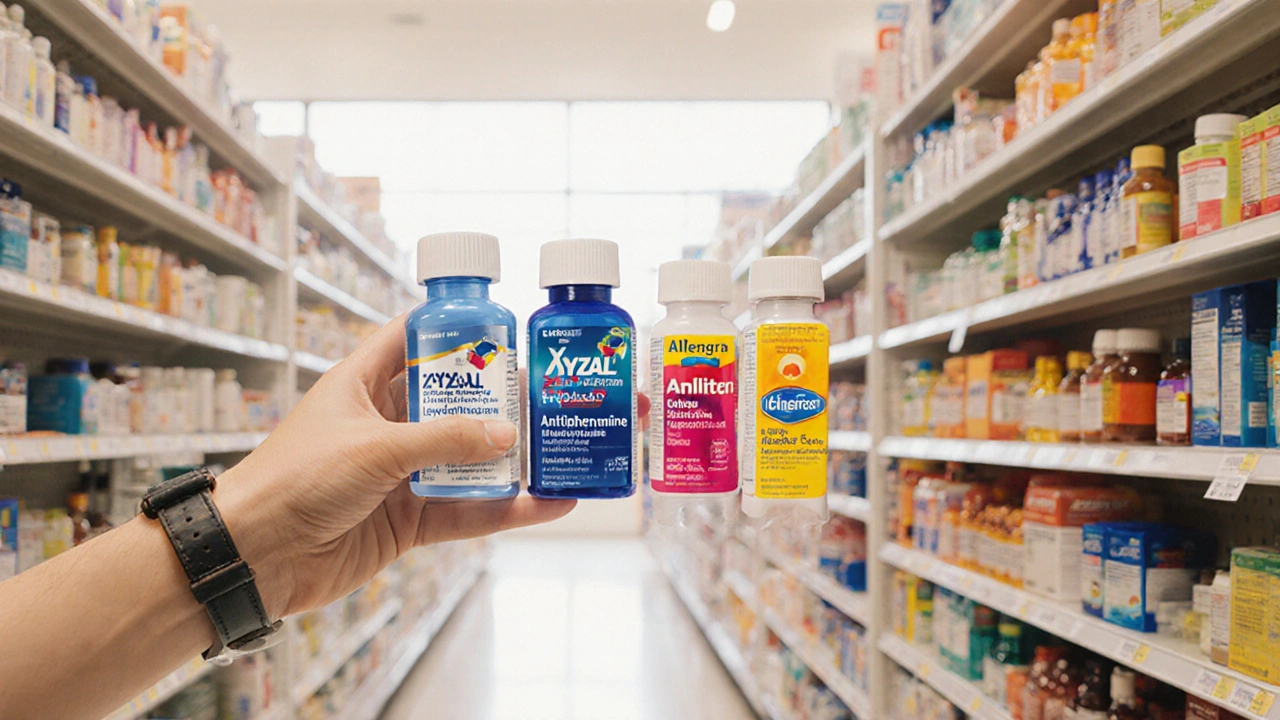

When you see Levocetirizine, a second‑generation antihistamine that blocks histamine H1 receptors to relieve allergy symptoms. Also known as Levocetirizine dihydrochloride, it is prescribed for hay fever, hives and other allergic reactions. Unlike older antihistamines, it aims to keep you alert while still calming the itch and sneezing.
Levocetirizine belongs to the broader class of antihistamines, drugs that block the action of histamine, a chemical released during allergic responses. The primary target is the histamine H1 receptor, a protein on cells that triggers itching, swelling and mucus production when activated. By binding to this receptor, levocetirizine prevents those signals, easing the discomfort without causing the heavy drowsiness typical of first‑generation antihistamines.
One of the most common conditions it treats is seasonal allergic rhinitis, often called hay fever. This condition spikes when pollen counts rise, leading to sneezing, runny nose and itchy eyes. Because levocetirizine works systemically, it reduces these symptoms whether they start in the morning or flare up later in the day. Users often notice a steady improvement within an hour, and the effect can last up to 24 hours, making once‑daily dosing convenient.
Levocetirizine comes in several dosage forms: a 5 mg tablet, a 5 mg oral solution, and a pediatric syrup for kids as young as six months. The standard adult dose is one tablet or the equivalent amount of liquid once a day. For children, the dose is weight‑based and usually measured in milligrams per kilogram. It’s important to avoid alcohol and other sedating meds while on levocetirizine, as they can enhance drowsiness. Common side effects are mild and include headache, dry mouth, and occasional fatigue; serious reactions like swelling of the face or difficulty breathing are rare but require immediate medical attention.
If you’re looking for rapid, non‑drowsy relief, Levocetirizine is a solid choice. Below you’ll find in‑depth articles that compare it with other antihistamines, explain how to spot a reputable online pharmacy, and offer tips for managing allergy season without sacrificing your daily routine. Dive in to get the full picture and make an informed decision about your allergy care.

A detailed comparison of Xyzal (Levocetirizine) with Zyrtec, Claritin, Allegra, and Benadryl, covering effectiveness, side effects, cost, and best-use scenarios.